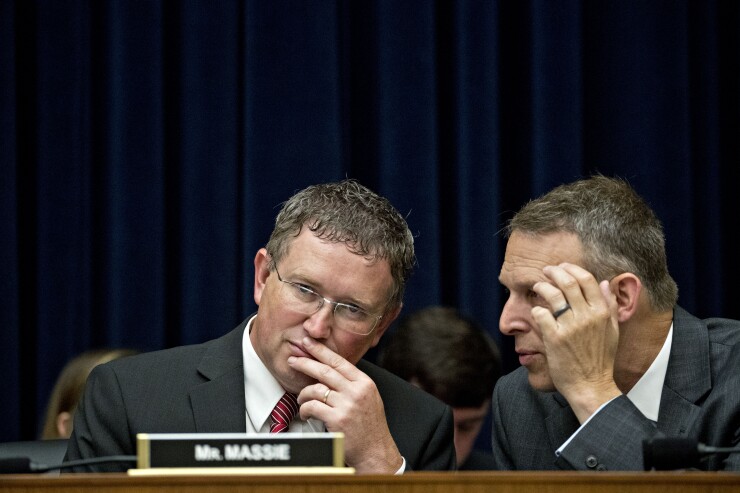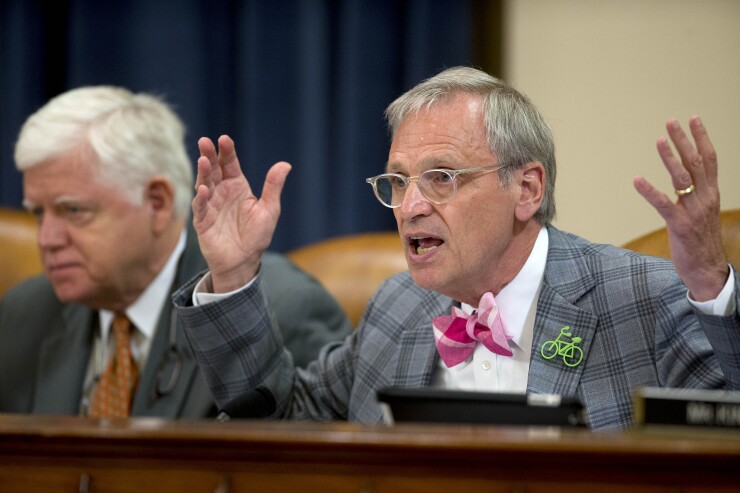Bipartisan legislation has been introduced in the House to remove the federal cap on the airport passenger facility charges, giving airports more flexibility and local control to finance major construction projects with bonds.
Rep. Thomas Massie, R-Ky., introduced
Airlines oppose any increase in the PFC. Some federal budget watchdog groups and conservative think tanks see it as a way to shift some of the financial responsibility for airports away from Washington. FreedomWorks, Citizens Against Government Waste, Competitive Enterprise Institute, and Taxpayers Protection Alliance support the bill.

The Massie-Blumenauer bill wouldn’t set any cap on the PFC, which is currently limited to $4.50 per flight segment.
The PFC is a user charge determined by the local airport authority or governmental unit that operates the airport. Airports pay for operations and capital improvements through the PFC, funding from the Federal Aviation Administration’s Airport Improvement Program and airport-generated revenue from rents and fees.
Dedicated PFC revenue and airport-generated revenue are the most common method for financing bonds for capital improvements.
Many airports, however, are at their maximum bonding ability using the revenue stream from the current PFC levy, according to the Airports Council International-North America.
“From delays due to inadequate gate capacity to long security lines and inefficient facilities, airports need to be able to prioritize their local needs and update their facilities for the 21st century,” Blumenauer said in a press statement.
ACI President Kevin Burke described the bill as a “pro-market approach” that would allow “each airport to determine its own user-fee rate based on its own unique infrastructure needs.”
ACI says the average airport terminal is 40 years old and estimates the nation's airports need $128.1 billion in new infrastructure over the next five years or $25.6 billion on an annualized basis.
“Removing the PFC cap and allowing airports to collect more of their own revenue from users reduces airports’ dependency on federal grants and taxes,” Massie said in a press statement. “This bill would let airports — not the federal government — decide what to charge customers who use their facilities so they can increase investments to improve passenger experience.”
Efforts to include an increase in passenger facilities charges failed last year when it was not included in a reauthorization of the FAA.

Democratic Rep. Peter DeFazio of Oregon, who sponsored the bill to lift the PFC cap in the last Congress, became chairman of the House Transportation and Infrastructure Committee when Democrats took majority control of the chamber in January.
It’s unclear how the House bill might move forward in the current Congress, because hope has dimmed for any major infrastructure legislation this year.
“The Congressman is continuing to work to identify a vehicle for this legislation,” a spokesman for Blumenauer said in an email Thursday.
There currently is no Senate version of the new House bill, though the Senate Appropriations Committee did vote in the last Congress to allow a PFC increase to $8.50 with an automatic inflation adjuster for future increases. The measure was ultimately unsuccessful.





